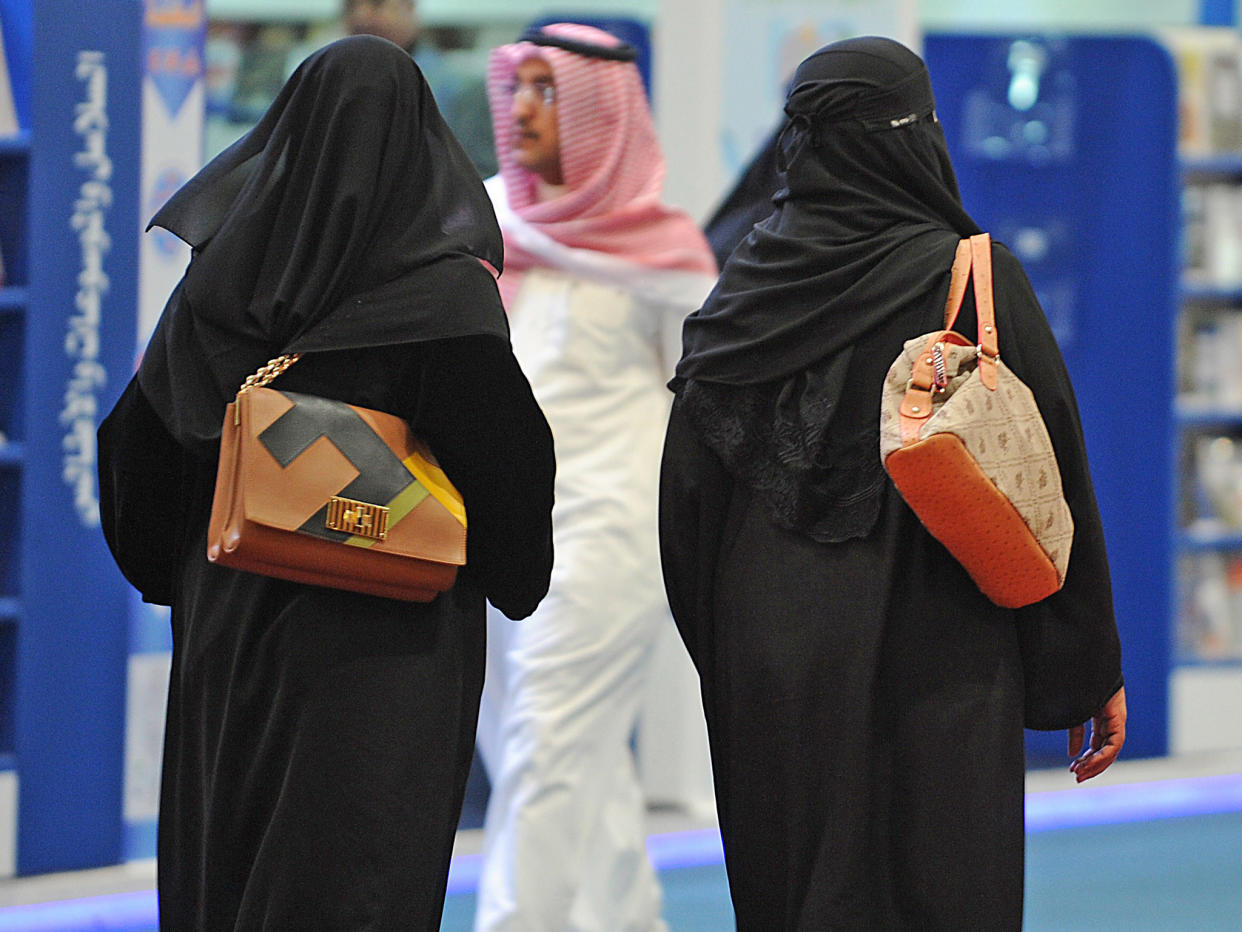Saudi Arabia, one of the world’s worst places to be a woman, has just been put on the UN commission to promote gender equality

The UN has announced that Saudi Arabia will be a part of the Commission on the Status of Women, the intergovernmental body dedicated to the promotion of gender equality and the empowerment of women. That’s right, Saudi Arabia.
The country so committed to women’s liberation that it ranks 141/144 for gender equality in the World Economic Forum’s 2016 Global Gender Gap report. That’s third place from the bottom. This may have something to do with the fact that women cannot drive and need permission from a male guardian to travel, work, marry, access healthcare and even leave prison. Hillel Neuer of UN Watch summed it up with the comment, “Electing Saudi Arabia to protect women’s rights is like making an arsonist into the town fire chief”.
The decision to include Saudi in this UN Commission on the Status of women couldn’t have come at a more ironic time. Earlier this month, Dina Ali, a 24 year old Saudi woman fleeing a forced marriage, was forcibly returned to Saudi Arabia by Philippine authorities as she tried to make her way to Australia to seek asylum. She blogged that she would be killed on her return to by her family because her actions would be viewed as dishonourable. It is unclear what events unfolded at the airport but we know that her uncles arrived at Manila airport and forcibly took her to Riyadh. Her fate remains unknown but Bloomberg received word from Saudi authorities that she is being held at a detention facility for women under 30 and hasn’t been charged.
This isn’t an isolated incident. In the past, many high profile escapes by Saudi women fleeing abuse have come to light including the case of a Saudi princess granted asylum by British courts because she had a child with a man outside her family, something that is forbidden. According to the Gulf Centre for Human Rights, prominent activist and feminist Maryam Al-Otaibi was allegedly arrested this week after fleeing her father’s home to live independently. As the country seeks rapid modernisation of infrastructure, it is also using insidious technology to monitor women’s movement, sending an SMS alert to male guardians if their female relatives leave the country.
Given these facts, why is Saudi Arabia on the commission? The vote was made via a secret ballot, and UN Watch believes that at least 15 of the 54 democratic member states (including five EU members) of the UN Economic and Social Council voted in favour of it. We have no evidence to suggest who voted in favour of Saudi Arabia. However, we do know that the country has some key allies.
Following the release of leaked diplomatic cables by Wikileaks, UN watchdogs reported that Saudi Arabia and Russia had traded votes for UNHRC seats. The UK government under Prime Minister David Cameron also came under fire after records showing that the UK initiated back-door negotiations by asking Saudi Arabia for its support ahead of a ballot were leaked as well.
We know that eight of the members of the UN Economic and Social Council – including the UK, USA, France, Germany and Italy – sell arms to Saudi Arabia. Incidentally, Saudi Arabia is the world’s largest arms importer and has bought arms worth $4.2bn from UK, €760 million from Germany and $20 billion from US in 2015 alone. Apart from being a key ally in the conflicts raging in Middle East, the US is also the second biggest importer of oil from Saudi Arabia.
As activists and women’s rights campaigners call for reform within Saudi Arabia, a country where human rights abuses and limits on civic freedoms are stifling quality of life, how much can it actually contribute to the UN Commission is a question waiting to be answered. To appease international and local pressure amidst questionable military interventions, Saudi Arabia uses its position on UN Human Rights Council and now, UN Commission on the Status of Women to show they are engaging with the international community to reform archaic laws. “Make the naughtiest kid in the class the monitor if you want discipline” might not quite work for the UN Commission for status of women.

 Yahoo News
Yahoo News 
